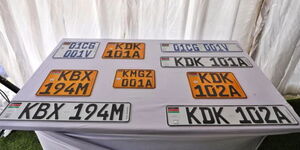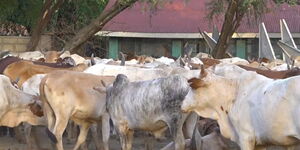Kenyans have been warned to brace for a significant increase in the prices of commodities after the government reclassified goods from zero-rated to tax-exempt.
Speaking on Tuesday, May 20, during the Budget Summit 2025, the Kenya Association of Manufacturers (KAM) Chief Executive Officer, Tobias Alando, said reclassification of goods from zero-rated to exempt would inevitably lead to higher prices for consumers.
It is worth noting that for zero-rated goods, the government does not tax their sale but allows credit for Value Added Tax (VAT) paid on inputs. However, if a product is tax-exempt, the government does not tax the commodity, but the producers cannot claim credit on VAT on inputs.
If a product is tax-exempt, it means the overall cost of producing or selling it is not reduced, which consequently leads to higher prices for goods.
Alando, while addressing stakeholders, urged the government to allocate adequate funds to clear the pending VAT refunds following the National Treasury's decision to move most of the goods from zero-rated to tax-exempt status.
"The reclassification of goods from zero-rated (Second Schedule) to exempt (First Schedule) will inevitably lead to higher prices for consumers. Therefore, we urge for greater financial allocation to clear outstanding VAT refunds," Alando said.
During the summit, the KAM CEO also challenged the Kenya Revenue Authority (KRA) to establish workable systems that enable manufacturers to claim input VAT immediately after production.
According to Alando, there were no impediments to resolving the current administrative challenges within KRA to allow manufacturers to seamlessly access their VAT refunds.
He further lamented that Kenya's current tax policies disproportionately burden those in formal employment who face several statutory deductions, which come in the form of direct taxes.
"KRA must establish workable systems that enable manufacturers to claim input VAT immediately after production. We must streamline our current VAT regime," Alando said.
He added, "Many of our current tax policies disproportionately burden those in formal employment. We must explore strategies to collect the same revenue from a wider tax base."
The National Treasury recently released the Finance Bill 2025, which proposed the reclassification of certain commodities and services from zero-rated to tax-exempt.
Some of the goods and services that are set to become tax exempt include raw materials used in the production of medicine, locally assembled mobile phones, animal feeds and transportation of sugarcane.
Treasury Cabinet Secretary John Mbadi has been on a campaign to explain the new Finance Bill, which he claims lacks new taxes compared to the previous one. While the Bill lacks new taxes, it seeks to tighten tax compliance to remove revenue leaks.












